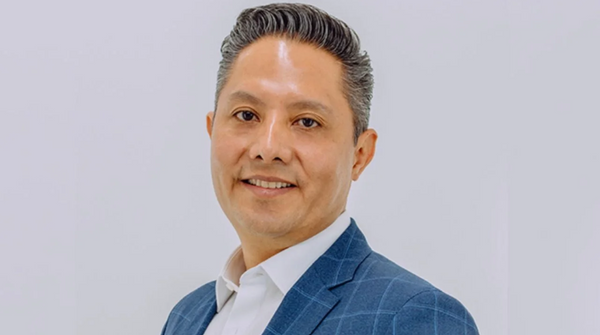
Good morning.
Are you able to bring your authentic self to work each day?
If you ask William M. Washington III, global CFO at Baker McKenzie, an international law firm, he’ll tell you that embracing introversion is a part of creating an inclusive workplace. In LinkedIn posts, Washington has openly talked about being an introvert in a leadership position. After reading a few of his posts that came across my feed, I was intrigued to learn more about the finance chief at the largest law firm in the U.S. by headcount, according to the National Law Journal's annual NLJ 500 list.
"When I first wrote about it on LinkedIn, I wasn't trying to write about introversion or being an introvert," Washington tells me. "I was just sharing my authentic self in a way that I thought might help somebody."

“It wasn’t until I was really much older when I started using the term introvert to refer to myself,” he explains. “My wife had always read books on being an introvert, and then I started reading the books.” And that’s when he realized the character traits applied to him.
Introverts are often characterized as being more comfortable focusing on their inner thoughts and ideas, preferring to spend time with one or two people as opposed to large crowds, are energized by solo time, and feel drained by prolonged socializing.
How does Washington define himself as an introvert? He explains it as such: When given two options, for example, “‘William, it’s your birthday, and you can do X or Y,’” he says. “I choose to do Y, which is generally to be in an atmosphere by myself.”
“Now, I do a lot of activities,” Washington adds. “I'm the father of four children. I serve on a lot of boards. I have a lot of team activities that I have to do at work. But now I know that to protect my mental health, there has to be a big, big window where I don't have to be giving, where I can just recharge.” And in between work meetings, he blocks off periods of time where he isn't scheduled, he says.
Opting out of happy hours
When looking back on his life, Washington realized he’s been an introvert since he was a kid. And during college, he chose not to participate in big events. But he did enjoy intermingling with a small group of people while playing basketball, or at the library where he met “kindred spirits,” he says.
Earlier in his career, Washington was a finance manager at Accenture and Fannie Mae. His first CFO job was as finance chief of the Americas at Hogan Lovells, a law firm. When he became an executive, he took the initiative to begin to opt out of certain company events—like happy hours and some work dinners.
“I really used the drinking at happy hour to kind of cover up or mask the uncomfortable anxiety I felt, and tried to push through those events,” Washington explains. “I never enjoyed them because I tended to be burned out by the end of a workday. I worked really hard and I realized that I needed the time to recharge.”
He continues, “But when I became a global CFO, and started saying to people directly that, ‘I
do not do work dinners' is when I finally found my true self.”
Washington further defines his stance as: “I will not go to meetings all day, and then go to dinner with that same group that I sat in meetings all day with. To me, that is like grinding nails on a chalkboard in terms of what it does to my energy levels.” By avoiding that scenario, “I find myself much better in the morning time when I walk into that meeting room,” he says.
However, he’s not opposed to a separately planned dinner, for example, “If someone called me and said, ‘Let's get together and meet with the bankers,’” that would work, Washington explains.
"Introverts are often exhausted in their workplace because many of their colleagues don’t know how to harness the power of introversion," Friederike Fabritius, M.S., a neuroscientist, wrote in a recent article for CNBC. Some suggestions to make an introvert thrive in the workplace include respecting boundaries, allowing employees to brainstorm alone, shorter meetings, and encouraging people to decide how they want to communicate, according to Fabritius.
Social gatherings aren’t the only way to connect with colleagues or team members, Washington says. “I have really good relationships with people,” he says. “I do coffees. I do walks.”
“I actually think more leaders, including CEOs, are introverts than people notice,” Washington says.
The CEO Next Door is a book that, in part, explores this topic. The research is based on an analysis of over 2,600 leaders drawn from a database of more than 17,000 CEOs and C-suite executives. In a Harvard Business Review article, the authors explain one of the findings: Although when appointing CEOs “boards often gravitate toward charismatic extroverts, introverts are slightly more likely to surpass the expectations of their boards and investors.”
Washington hopes that other introverts will realize the types of environments they need to thrive at work. “Being empowered to say no is a big thing,” he says.
Sheryl Estrada
sheryl.estrada@fortune.com







